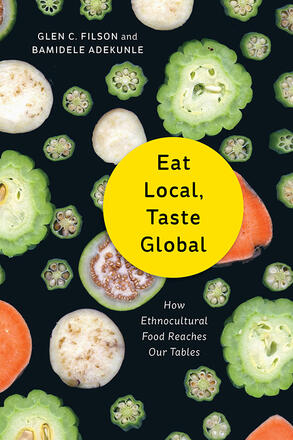
Description
Eat Local, Taste Global: How Ethnocultural Food Reaches Our Tables shows how the demand for ethnocultural vegetables on the part of Toronto’s South Asian, Chinese, and Afro-Caribbean Canadians is at odds with the corporate food regime. How does that regime affect the local food movement and ethnic groups’ access to their preferred foods? This book addresses that question and suggests that the protection of ethnic and national food security and sovereignty strengthens immigrant integration while producing healthy crossover effects for other Canadians.
The authors show how culture, food, and migration are intertwined and how access to ethnocultural vegetables is affected by ethnicity, social class, shopping venues, and food prices. Most ethnic vegetables are imported by corporations and ethnic intermediaries and pass through Toronto’s Food Terminal; however, local farmers are now producing some of these vegetables, and alternative forms of agriculture and markets play a significant role in bringing ethnocultural vegetables to our tables.
Social justice requires that people have both food security and food sovereignty. Eat Local, Taste Global offers solutions to identified contradictions that include making farmers’ markets more inclusive, improving conditions for migrant farm workers, and making alternative forms of agriculture more feasible. This book will be of interest to rural sociologists and political scientists as well as policy-makers, food activists, farmers, and food security organizations.
Reviews
[Eat Local, Taste Global is an] eye-opener for readers who recall when the range of exotic foreign foods in Canada ran a narrow gamut from chop suey to Japanese oranges.
- Holly Dunn